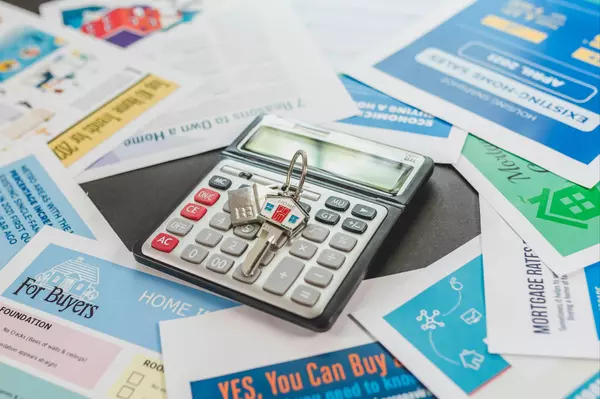How to Improve Your Credit Score Before Buying a Home: Tips to Boost Your Score and Qualify for Better Rates
by Stella Bateman
When you're planning to buy a home, one of the most important factors that can influence your ability to secure financing is your credit score. A higher credit score not only increases your chances of getting approved for a mortgage but also helps you qualify for better interest rates, potentially saving you thousands of dollars over the life of your loan. If you're thinking about purchasing a home, here are some practical tips to help you improve your credit score before applying for a mortgage.
1. Check Your Credit Report for Errors
Before you start working on improving your credit score, it's essential to review your credit report for any inaccuracies. Mistakes on your report, like incorrect account balances or even accounts that don't belong to you, can negatively impact your score. You can get a free credit report once a year from each of the three major credit bureaus (Equifax, Experian, and TransUnion) by visiting AnnualCreditReport.com.
- What to look for: Ensure that your personal information is correct, verify account details, and check for any accounts that you don't recognize.
- What to do if you find errors: Dispute the errors with the credit bureau and get them corrected to avoid any impact on your score.
2. Pay Your Bills on Time
Payment history accounts for a significant portion of your credit score. Late payments, especially those over 30 days past due, can have a lasting negative impact. Making timely payments is one of the most effective ways to boost your credit score.
- Set up reminders or automatic payments: If you struggle with remembering due dates, consider setting up automatic payments or creating reminders in your calendar.
- Focus on past-due bills: If you have any past-due accounts, focus on getting them current as quickly as possible to avoid further damage to your score.
3. Reduce Your Credit Card Balances
Credit utilization—the ratio of your current credit card balances to your credit limits—is a key factor in determining your credit score. Ideally, you should aim to keep your credit utilization below 30%. If your balances are high, paying them down can give your credit score a significant boost.
- Pay down high-interest cards first: Focus on paying off credit cards with high-interest rates to reduce debt more efficiently.
- Avoid new charges: While paying down your balances, avoid adding new debt to your credit cards. Keeping your utilization low will help improve your score over time.
4. Avoid Opening New Credit Accounts
Each time you apply for new credit, a hard inquiry is made on your credit report, which can slightly lower your score. If you're planning to buy a home in the near future, it's best to avoid opening new credit accounts or taking out new loans.
- Wait until after closing: If you’re already in the process of buying a home, hold off on making large purchases or applying for new lines of credit until after your mortgage is approved and you’ve closed on your new home.
5. Negotiate with Creditors to Remove Negative Items
If you have accounts that are in collections or late payments, you may be able to negotiate with the creditor to have these items removed from your credit report. In some cases, creditors will agree to remove the negative marks in exchange for a payment or settlement.
- Request a goodwill adjustment: If you’ve had a good history with a creditor but missed a payment due to extenuating circumstances, you can ask them to remove the negative mark as a goodwill gesture.
- Settling debt: If you settle a debt for less than what you owe, ask the creditor to update your credit report to reflect the "settled" status, which is better than leaving it as "unpaid."
6. Keep Old Accounts Open
The length of your credit history also plays a role in determining your score. The longer your credit accounts have been open, the better. If you have older credit cards that you’re not using, keep them open. Closing them can shorten your credit history and potentially hurt your score.
- Use old cards occasionally: If you don't want to rack up interest, consider making small purchases on old accounts and paying them off immediately to keep the account active.
7. Consider a Secured Credit Card
If your credit history is limited or damaged, a secured credit card can help you rebuild your score. With a secured card, you deposit a certain amount of money that serves as your credit limit. By making regular, on-time payments, you can improve your credit over time.
- Use it responsibly: Be sure to use the card for small purchases and pay off the balance in full each month to avoid interest charges.
8. Be Patient
Improving your credit score doesn’t happen overnight. It can take several months of consistent effort before you start seeing significant changes. If you're planning to buy a home in the near future, start working on your credit as early as possible so you can give yourself the best chance for approval and the most favorable mortgage rates.
Final Thoughts
Improving your credit score is a critical step in the homebuying process. By checking your credit report for errors, paying bills on time, reducing credit card balances, and making smart financial decisions, you can boost your score and position yourself for better mortgage rates. Remember, even small improvements can make a big difference in your ability to get approved for a loan and the terms you'll receive.
If you’re planning to buy a home soon, start working on your credit now, and feel free to reach out if you have questions about the home buying process. I’m here to help guide you every step of the way!
Categories
Recent Posts
NC Real Estate Broker/Realtor | License ID: NC #122322
+1(252) 207-8566 | stellabateman@epique.me




